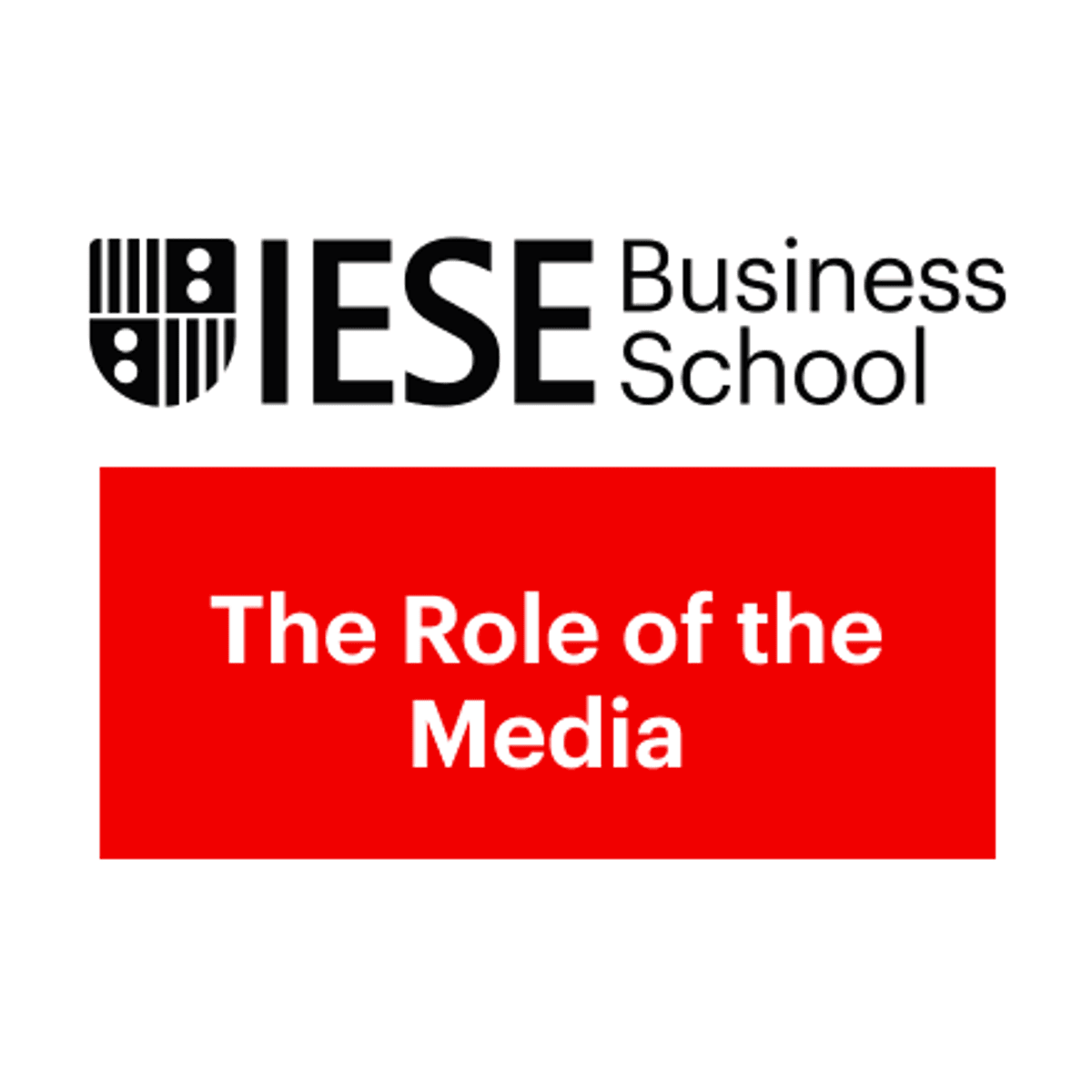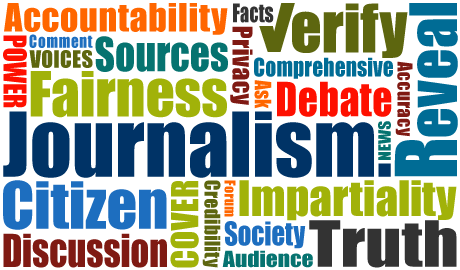Reporter
Reporter: A Comprehensive Career Guide
A reporter is a professional who gathers information about current events, people, or issues and presents it in a clear, accurate, and engaging way for public consumption. They work across various media platforms, including newspapers, magazines, television, radio, and online publications, serving as the public's eyes and ears on the ground.
The core function of a reporter involves investigating leads, conducting interviews, verifying facts, and crafting stories that inform, educate, or entertain an audience. This career path often attracts individuals driven by curiosity, a passion for truth, and a desire to make sense of the world around them. It can be a demanding yet highly rewarding profession, offering opportunities to witness history unfold and give voice to diverse perspectives.
Introduction to Reporting
This section provides a foundational understanding of the reporting profession, outlining its scope, history, and fundamental goals in today's media landscape.
What is Reporting?
Reporting is the practice of collecting information about events, trends, issues, and people of public interest. Reporters seek out facts, evidence, and perspectives to create narratives that accurately reflect reality. This involves research, observation, interviewing sources, and analyzing data.
The scope of reporting is vast, covering everything from local community events to international affairs, politics, business, sports, science, and culture. Regardless of the specific beat or medium, the fundamental task remains the same: to uncover and convey truth in a compelling manner.
Modern reporting extends beyond traditional text articles. It often incorporates multimedia elements like video, audio, photography, and data visualizations to enhance storytelling and reach audiences across different platforms. The goal is always to provide timely, relevant, and verified information.
To understand the basics of what constitutes news and the various forms it takes, consider exploring introductory resources. These can help establish a solid understanding of journalistic principles from the outset.
A Brief History
The role of the reporter has evolved alongside communication technologies and societal needs. Early forms involved town criers and handwritten newsletters. The invention of the printing press dramatically expanded the reach of reported information, leading to the rise of newspapers in the 17th and 18th centuries.
The 19th century saw the emergence of professionalized journalism, with reporters developing ethical standards and investigative techniques. Figures like Nellie Bly and Ida B. Wells pioneered immersive and crusading reporting styles. The 20th century brought radio and television, creating new formats and immediacy for news delivery.
The digital age has again transformed reporting, introducing online news outlets, blogs, social media, and citizen journalism. This shift presents both challenges, like the rapid spread of misinformation, and opportunities, such as greater accessibility and audience interaction. Understanding this history provides context for the enduring values and changing practices of the profession.
Studying the history and evolution of journalism helps contextualize the modern reporter's role. Several books delve into the historical significance and impact of the press.
Core Objectives Today
In the contemporary media environment, a reporter's primary objective is still to inform the public accurately and impartially. This involves navigating a complex information landscape often filled with biased or false narratives. Upholding truth and providing context are paramount.
Reporters also play a crucial role in holding power accountable. Through investigative work and critical questioning, they shed light on the actions of governments, corporations, and other influential entities. This watchdog function is vital for a healthy democracy.
Engaging the audience is another key objective. Modern reporters must present information in ways that capture attention and foster understanding. This involves clear writing, compelling storytelling, and leveraging multimedia tools effectively, while adhering to ethical guidelines. Developing skills in news literacy is also important for both reporters and the public they serve.
These courses focus on the essential skills of news gathering, development, and delivery, crucial for meeting the core objectives of modern reporting.
Key Responsibilities of Reporters
Understanding the day-to-day tasks and responsibilities is crucial for anyone considering a career as a reporter. This section details the core activities involved in the profession.
Gathering Information
The foundation of any news story is information. Reporters employ various techniques to gather facts, quotes, and context. This includes attending press conferences, covering events, accessing public records, conducting database research, and cultivating sources.
Interviewing is a fundamental skill. Reporters must identify relevant individuals, prepare insightful questions, listen attentively, and accurately record responses. Building trust with sources, especially confidential ones, is essential for accessing sensitive or exclusive information.
Observation also plays a role. Being present at the scene of an event allows reporters to capture details, atmosphere, and nuances that might be missed otherwise. Field reporting often requires adaptability and resourcefulness in unfamiliar or challenging environments.
Developing strong research and interviewing skills is paramount. Online courses offer structured ways to learn these fundamental techniques.
These books provide excellent guidance on the art and technique of interviewing.
Verification and Fact-Checking
Accuracy is the cornerstone of credible reporting. Before publishing or broadcasting, reporters must rigorously verify all information. This involves cross-referencing facts with multiple independent sources, checking documents for authenticity, and confirming quotes.
The rise of digital misinformation makes verification more critical than ever. Reporters need skills to identify manipulated images or videos, assess the credibility of online sources, and understand the potential biases in data. Specialized tools and techniques are often employed in this process.
Ethical reporting demands transparency about sources and methods whenever possible. When information cannot be independently verified, it should be clearly attributed or potentially withheld until confirmation is possible. Maintaining high standards of accuracy builds trust with the audience.
This course specifically addresses the challenges of fake news and digital verification.
This book discusses the importance of precision and fact-based reporting.
Structuring and Writing Stories
Once information is gathered and verified, the reporter must organize it into a coherent and engaging narrative. Different story structures suit different types of news and media formats. The inverted pyramid structure, prioritizing the most crucial information first, is common for breaking news.
Feature stories often use more creative structures, incorporating anecdotes, descriptive language, and character development to explore a topic in depth. Regardless of the format, clarity, conciseness, and adherence to style guidelines (like AP style) are essential.
Writing for different platforms requires distinct approaches. Broadcast scripts need to be conversational and timed precisely. Online articles may incorporate hyperlinks, multimedia, and interactive elements. Print stories must fit specific space constraints while remaining comprehensive.
Mastering different writing styles and structures is key. These courses focus on crafting news reports and feature articles effectively.
These books offer guidance on writing and reporting standards.
Meeting Deadlines
The news cycle is often fast-paced, and reporters work under constant pressure to meet deadlines. This requires excellent time management, organizational skills, and the ability to work efficiently under pressure.
Breaking news situations demand quick thinking and rapid response. Reporters may need to gather information, write, and file stories within minutes or hours. Even for longer-term investigative pieces, managing project timelines and coordinating with editors is crucial.
The ability to prioritize tasks, stay focused amidst distractions, and maintain accuracy even when working quickly is a hallmark of a successful reporter. This often involves developing personal workflows and leveraging technology to stay organized.
Types of Reporters
The field of reporting offers various specializations and work environments. Understanding these distinctions can help aspiring reporters align their interests and skills with specific career paths.
Broadcast vs. Print vs. Digital
Broadcast reporters work for television and radio stations. Their roles often involve on-camera or on-air presentation, requiring strong verbal communication skills and screen presence. They frequently work with producers and camera crews to create news packages.
Print reporters traditionally wrote for newspapers and magazines. While print circulation has declined, the skills of in-depth reporting, precise writing, and thorough fact-checking remain highly valued. Many print reporters now also produce content for their publication's website.
Digital reporters work primarily for online news outlets, blogs, or the web divisions of traditional media organizations. Their work often involves multimedia storytelling, social media engagement, and understanding web analytics. The lines between these categories are increasingly blurred as most news organizations operate across multiple platforms.
Understanding how media functions across platforms is important. This course offers insights into the role of media more broadly.
Beat Reporting
Many reporters specialize in a particular subject area, known as a "beat." Common beats include politics, business, crime, education, health, science, sports, and arts/culture. Beat reporters develop deep knowledge and extensive source networks within their area of expertise.
Specializing allows reporters to provide more insightful and nuanced coverage. They can identify trends, provide context, and break exclusive stories that general assignment reporters might miss. Building expertise in a beat takes time and dedication.
Choosing a beat often depends on personal interests, background, and the needs of the news organization. Some beats, like politics or business, may require specialized knowledge or educational background. You can explore various fields like Political Science or Finance & Economics on OpenCourser.
Investigative vs. Routine Reporting
Routine or general assignment reporting typically involves covering scheduled events, daily news developments, and assigned stories. These reporters need to be versatile and able to quickly grasp new topics. They form the backbone of daily news coverage.
Investigative reporting focuses on uncovering information that powerful individuals or organizations may wish to conceal. This often involves long-term projects, extensive research, data analysis, and working with confidential sources. Investigative pieces aim to expose wrongdoing, corruption, or systemic problems.
While investigative reporting can lead to significant impact and prestigious awards (like the Pulitzer Prize), it requires tenacity, meticulous attention to detail, and often significant resources from the news organization. Many reporters transition into investigative roles after gaining experience in general assignment or beat reporting.
These books highlight powerful examples of investigative journalism and the impact it can have.
Freelance Dynamics
Freelance reporters work independently, selling stories or services to various news outlets rather than being employed by a single organization. This offers flexibility and autonomy but also requires strong entrepreneurial skills, self-discipline, and the ability to manage finances and find consistent work.
Freelancers often pitch story ideas to editors and negotiate contracts for their work. They might specialize in a particular topic or region, or work as generalists. Building a strong portfolio and network of contacts is crucial for success.
The freelance economy in journalism has grown, offering opportunities but also challenges regarding job security, benefits, and fluctuating income. Many reporters combine freelance work with other part-time roles or transition between staff and freelance positions throughout their careers.
Essential Reporter Skills
Success as a reporter hinges on a diverse set of skills, ranging from interpersonal abilities to technical proficiency. This section highlights the core competencies required in the field.
Interviewing Techniques
Effective interviewing goes beyond simply asking questions. It involves building rapport, active listening, asking probing follow-up questions, and knowing when to be persistent or empathetic. Different situations call for different approaches, from formal Q&As to conversational interviews.
Preparation is key. Researching the interviewee and the topic beforehand allows for more informed and insightful questioning. Reporters must also be skilled at recording information accurately, whether through note-taking, audio recording (with permission), or memory.
Handling difficult interviews—such as those with evasive subjects, traumatized individuals, or officials delivering complex information—requires sensitivity, ethical awareness, and strong communication skills. Mastering interviewing is a continuous process of learning and refinement.
Specific courses can hone interviewing abilities, a critical skill for any reporter.
Writing and Style Mastery
Clear, concise, and accurate writing is fundamental. Reporters must be able to convey complex information in a way that is easily understood by a broad audience. This involves strong grammar, vocabulary, and sentence structure.
Most news organizations adhere to a specific style guide, commonly the Associated Press (AP) Stylebook, to ensure consistency in language, punctuation, and formatting. Familiarity with and adherence to the relevant style guide is expected.
Beyond basic clarity, good reporting often involves compelling narrative techniques. Knowing how to craft engaging leads, structure stories logically, use quotes effectively, and write strong headlines are all essential writing skills for reporters.
Developing strong writing skills tailored for journalism is essential. Consider resources focused on journalistic writing and feature development.
This classic guide is indispensable for understanding journalistic writing principles.
Multimedia Tool Proficiency
In today's media landscape, reporters often need skills beyond writing. Proficiency with multimedia tools is increasingly important. This can include basic photography and videography, audio editing for podcasts or broadcast clips, and creating data visualizations or interactive graphics.
Understanding Content Management Systems (CMS) for publishing online, using social media platforms for news gathering and distribution, and basic data analysis tools (like Excel) can also be valuable assets.
While specialization exists (e.g., photojournalists, data journalists), a baseline understanding of various media formats allows reporters to tell stories more effectively and adapt to the needs of different platforms. Continuous learning of new digital tools is often necessary.
Learning to present information visually is a key skill. These books explore visual ethics and data storytelling.
Communication and Interpersonal Skills
Reporting is inherently a people-centric profession. Strong interpersonal skills are needed to build relationships with sources, collaborate with editors and colleagues, and interact with the public. This includes active listening, clear articulation, and empathy.
Crisis communication skills can be important, especially for reporters covering sensitive or traumatic events. Knowing how to approach individuals in distress, ask difficult questions respectfully, and handle high-pressure situations calmly is crucial.
Networking and building professional relationships within the industry and within one's beat are also vital for career development, finding story leads, and staying informed. Public speaking skills can be beneficial, particularly for broadcast reporters or those who participate in panels or community events.
Consider resources that enhance general communication and public speaking abilities.
For non-native English speakers, specific language courses can be invaluable.
Formal Education Pathways
While not always strictly required, formal education can provide a strong foundation and competitive advantage for aspiring reporters. This section explores common academic routes.
Relevant Undergraduate Majors
Journalism or Communications are the most direct majors for aspiring reporters. These programs typically offer coursework in reporting techniques, media law and ethics, writing styles, and multimedia production. They often provide access to student media outlets for practical experience.
However, degrees in other fields can also be highly valuable. Political Science, International Relations, Economics, History, English, or Sociology can provide deep subject matter knowledge useful for specific beats. A strong liberal arts education develops critical thinking and writing skills applicable to reporting.
Some reporters pursue double majors or minors to combine journalism training with expertise in another area. Regardless of the major, coursework emphasizing research, writing, critical analysis, and ethical reasoning is beneficial.
Explore related academic fields through OpenCourser's Communication Studies or Humanities categories.
The Role of Journalism Schools
Attending a dedicated journalism school, either at the undergraduate or graduate level, offers specialized training and resources. These schools often have experienced faculty with professional backgrounds, state-of-the-art equipment, strong industry connections, and robust career services.
Reputable journalism programs emphasize hands-on experience through workshops, student publications, and required internships. They provide a structured environment to learn core skills, build a professional network, and develop a portfolio of work.
However, journalism school can be expensive, and success in the field is not solely dependent on attending one. Many successful reporters come from diverse academic backgrounds, proving that practical experience and demonstrable skills are equally important.
Importance of Internships
Internships are critical for aspiring reporters, regardless of their major. They provide invaluable real-world experience, allowing students to apply classroom learning in a professional newsroom setting. Internships offer opportunities to build clips (published work samples), learn from experienced journalists, and make industry contacts.
Many news organizations use internship programs as a primary pipeline for hiring entry-level reporters. Completing one or more internships significantly enhances a graduate's job prospects. Students should actively seek internship opportunities throughout their college years.
Internships can be found at newspapers, magazines, television stations, radio stations, online publications, and wire services. Competition can be fierce, so a strong academic record, relevant skills, and a compelling application are usually required.
Utility of Advanced Degrees
A master's degree in journalism can be beneficial for career changers seeking formal training or for those wanting to specialize deeply in a particular area (like investigative or data journalism). Some programs cater specifically to mid-career professionals.
For certain specialized beats, such as science, law, or business reporting, an advanced degree in that subject area (e.g., a Master's in Biology, a JD, or an MBA) combined with reporting skills can be a significant advantage.
A Ph.D. is generally not required for practicing reporters but is typically necessary for academic careers in journalism education or media research. For most reporting roles, practical experience and a strong portfolio often outweigh the need for an advanced degree beyond a bachelor's.
Digital Learning for Reporting
The rise of online education provides flexible and accessible pathways for learning reporting skills, whether supplementing formal education or facilitating a career change.
Online Courses and Curricula
Numerous online courses and programs cover various aspects of reporting, from foundational principles to specialized techniques. Platforms like OpenCourser aggregate offerings from universities and industry experts worldwide, covering topics like news writing, interviewing, media ethics, digital journalism, and multimedia skills.
Learners can piece together a personalized curriculum focusing on their areas of interest or skill gaps. Online learning allows for self-paced study, accommodating busy schedules. Many courses offer certificates upon completion, which can be added to resumes or professional profiles.
Choosing reputable courses with experienced instructors and positive reviews is important. Look for programs that incorporate practical assignments and provide feedback to help develop tangible skills.
These courses, available through online platforms, cover core journalism skills suitable for self-directed learning.
Building a Portfolio Online
Practical experience is crucial, and online learning can facilitate portfolio building. Many courses include projects where learners produce actual news stories, features, or multimedia packages. These can serve as initial pieces for a professional portfolio.
Aspiring reporters can also leverage digital platforms independently. Starting a personal blog, contributing to community news sites, creating a podcast, or building a social media presence focused on a specific topic can demonstrate reporting skills and initiative to potential employers.
Online portfolio platforms allow reporters to showcase their best work—articles, videos, audio clips, data visualizations—in a professional format. A strong online portfolio is essential for job applications and freelance pitches in the digital age.
This capstone course specifically focuses on creating a professional journalistic portfolio.
Combining Self-Study with Experience
For many, a hybrid approach combining self-directed online learning with practical experience is effective. Online courses can provide theoretical knowledge and skill instruction, while seeking out real-world opportunities—even unpaid or volunteer positions initially—builds practical competence and clips.
Freelancing for smaller local outlets, contributing to student or community media, or even starting independent reporting projects can provide valuable experience. Networking online through professional groups or social media can also lead to opportunities and mentorship.
This path requires discipline and proactivity. Setting clear learning goals, consistently producing work, seeking feedback, and actively pursuing opportunities are key. It can be a viable route for career changers or those without access to traditional journalism programs.
Finding resources tailored for beginners or those on a budget can be helpful when starting out.
Reporter Career Progression
A career in reporting often follows a path of increasing responsibility, specialization, and potentially leadership roles. Understanding this trajectory helps in planning long-term career development.
Entry-Level Positions
New reporters often start in smaller markets or entry-level roles at larger organizations. Common starting positions include general assignment reporter, news assistant, production assistant (in broadcast), or stringer (a type of freelancer paid per story).
These initial roles provide foundational experience in meeting deadlines, working with editors, understanding newsroom workflows, and covering a variety of basic stories like local government meetings, community events, or police reports. Building a strong portfolio of published work (clips) is crucial during this stage.
Salaries at the entry level can be modest, particularly in smaller markets or certain types of media. According to the U.S. Bureau of Labor Statistics (BLS), the overall job outlook for reporters, correspondents, and broadcast news analysts is projected to show little or no change from 2022 to 2032, which highlights the competitive nature of the field, especially for entry-level positions.
Mid-Career Transitions
With experience, reporters can move to larger markets, take on more complex assignments, or specialize in a beat. They may become senior reporters, responsible for leading coverage in a particular area or mentoring junior staff.
Some reporters transition into editing roles, overseeing the work of other journalists, shaping story angles, and ensuring quality and accuracy. Roles like assignment editor, copy editor, or section editor represent common mid-career moves.
Others might move into producing roles in broadcast or digital media, managing the creation and presentation of news content. Mid-career reporters often have more autonomy in choosing stories and developing long-term projects.
Specialization Opportunities
Developing expertise in a specific area can open doors to specialized reporting roles. Investigative units, data journalism teams, or positions focusing on specific beats (e.g., environmental reporting, tech reporting) often require deep knowledge and advanced skills.
Photojournalism, video journalism, and podcasting represent specializations focused on particular media formats. Foreign correspondent roles require language skills, cultural understanding, and the ability to report from international locations, often under challenging conditions.
These specialized roles may offer higher salaries and greater professional recognition but often require additional training, significant experience, and a proven track record of excellence in the chosen area.
Management Pathways
Experienced reporters and editors may advance into newsroom management positions. Roles like managing editor, news director, or executive producer involve overseeing editorial strategy, managing budgets and staff, and making high-level decisions about news coverage.
These leadership positions require strong management skills, strategic thinking, and a deep understanding of the media business. Some may eventually move into executive roles within the broader media organization.
Alternatively, some seasoned reporters leverage their expertise to transition into related fields such as strategic communications, public relations, teaching journalism, or becoming authors.
Ethical Challenges in Reporting
Reporters frequently encounter complex ethical dilemmas. Navigating these challenges responsibly is crucial for maintaining credibility and serving the public interest.
Conflicts of Interest
Reporters must avoid situations where personal interests—financial, political, or relational—could compromise their impartiality or create the appearance of bias. This includes refusing gifts or favors that could influence coverage and disclosing potential conflicts to editors and audiences.
Maintaining independence from the people and institutions they cover is essential. This can be challenging, especially for beat reporters who develop long-term relationships with sources. Clear ethical guidelines and editorial oversight help manage these situations.
Transparency is often the best policy when potential conflicts arise. Being open about connections or affiliations allows the audience to judge the credibility of the reporting for themselves.
These books delve into the complex ethical landscape of journalism.
Source Confidentiality
Protecting the identity of confidential sources is a cornerstone of journalistic ethics, particularly in investigative reporting. Sources may risk their jobs, safety, or reputation by providing sensitive information, and reporters have a moral obligation to uphold promises of anonymity.
This obligation can sometimes clash with legal demands, leading to situations where reporters face subpoenas or contempt charges for refusing to reveal sources. Understanding shield laws (which vary by location) and organizational policies on source confidentiality is crucial.
Decisions about granting anonymity should be made carefully, usually in consultation with editors, and reserved for situations where the information is significant and cannot be obtained otherwise. Reporters must rigorously verify information from confidential sources.
Mitigating Bias
While complete objectivity may be an unattainable ideal, reporters strive for fairness, accuracy, and impartiality. This requires recognizing and actively working to mitigate personal biases related to political views, cultural background, or personal experiences.
Techniques for bias mitigation include seeking diverse perspectives, challenging assumptions, using neutral language, and being transparent about reporting methods. Editors play a key role in identifying and addressing potential bias during the editing process.
Understanding concepts like confirmation bias and actively seeking information that contradicts preconceived notions are important practices for reporters committed to fairness.
These resources address bias and ethical considerations in the digital age.
External Pressures and Censorship
Reporters may face pressure from governments, advertisers, powerful individuals, or even their own employers to shape coverage or suppress certain stories. Resisting undue influence and upholding journalistic independence is a critical ethical responsibility.
In some parts of the world, reporters face direct censorship, intimidation, legal threats, or violence for their work. Understanding the risks and taking appropriate safety precautions is essential, particularly for those covering conflict or authoritarian regimes.
Supporting press freedom organizations and adhering to professional codes of ethics provides a framework for navigating these pressures. Solidarity among journalists and support from news organizations are vital in resisting censorship attempts.
These books explore the legal and ethical dimensions of press freedom and media independence.
Market Trends Impacting Reporters
The media industry is constantly evolving, influenced by technological advancements, changing audience behaviors, and economic shifts. Understanding these trends is important for navigating a career in reporting.
Technology and AI
Artificial intelligence (AI) is increasingly being used in newsrooms for tasks like data analysis, content personalization, automated article generation (for routine topics like financial reports), and transcription. While AI offers efficiency gains, it also raises questions about job displacement and ethical oversight.
Reporters need to adapt by developing skills that complement AI, such as critical thinking, investigative work, nuanced storytelling, and ethical judgment. Understanding how AI tools work and their limitations is becoming increasingly valuable.
Digital tools for multimedia production, data visualization, and audience engagement continue to evolve rapidly. Staying current with relevant technologies is essential for reporters across all platforms.
Explore the intersection of technology and media through resources in Technology or Artificial Intelligence on OpenCourser.
Business Models and Funding
The decline of traditional advertising revenue has forced news organizations to explore new business models. Subscription models (paywalls), memberships, donations, and events are becoming more common sources of funding.
This shift impacts newsroom resources and priorities. Reporters may need to be more attuned to audience engagement metrics or involved in initiatives aimed at driving subscriptions or membership. The rise of non-profit news organizations also presents alternative career paths.
Understanding the financial pressures on the industry helps reporters navigate career decisions and advocate for sustainable journalism practices. Organizations like the Pew Research Center's Journalism Project provide ongoing research into media economics.
Press Freedom and Information Environment
Global press freedom faces significant challenges, including government restrictions, online harassment, and the spread of disinformation. Organizations like Reporters Without Borders (RSF) track these trends through indices like the World Press Freedom Index.
The proliferation of misinformation and disinformation online makes the reporter's role in verifying information and providing reliable context more critical than ever. It also requires reporters to be vigilant about their own digital security and aware of tactics used to discredit journalists.
Navigating this complex information environment requires strong ethical grounding, advanced verification skills, and resilience against external pressures and attacks.
Growth of the Freelance Economy
As mentioned earlier, freelancing is becoming increasingly common in journalism. While offering flexibility, it also shifts responsibilities like securing work, managing finances, and obtaining benefits onto the individual reporter.
The "gig economy" model presents both opportunities for specialization and niche reporting, and challenges related to income stability and labor protections. Many freelancers piece together income from multiple sources, including writing, editing, consulting, or teaching.
Understanding the dynamics of the freelance market, including pitching, negotiation, and contract management, is essential for those pursuing or considering this path.
Challenges and Potential Risks
While rewarding, a reporting career involves unique challenges and potential risks that prospective journalists should consider.
Reporting in Dangerous Environments
Covering conflicts, disasters, or civil unrest exposes reporters to physical danger. Foreign correspondents and those working in high-risk areas require specialized safety training, protective gear, and careful planning to mitigate risks.
Even domestic reporting can involve risks, such as covering protests that turn violent or investigating dangerous criminal organizations. News organizations have a responsibility to provide safety training and support, but reporters must also prioritize their own well-being.
Organizations like the Committee to Protect Journalists (CPJ) provide resources and advocate for journalist safety worldwide.
Digital Security and Harassment
Reporters, especially women and those from minority groups, increasingly face online harassment, threats, and doxxing (publishing private information). This can take a significant mental toll and pose real-world safety risks.
Strong digital security practices are essential to protect sources, data, and personal information from hacking or surveillance. This includes using encrypted communication methods, secure passwords, and being aware of phishing attempts.
News organizations are increasingly recognizing the need to support reporters facing online abuse, but individual vigilance and resilience are also necessary.
Burnout and Mental Health
The demanding nature of reporting—tight deadlines, exposure to traumatic events, constant pressure, and sometimes precarious employment—can lead to burnout and mental health challenges.
Witnessing tragedy, covering difficult subjects, and dealing with criticism or hostility can take an emotional toll. Developing coping mechanisms, seeking peer support, maintaining work-life balance, and utilizing mental health resources are important for long-term sustainability in the profession.
Some news organizations offer employee assistance programs, but reporters often need to proactively manage their mental well-being.
Legal Liabilities
Reporters and news organizations can face legal challenges, including lawsuits for defamation (libel or slander), invasion of privacy, or copyright infringement. Understanding media law principles is crucial to minimize these risks.
Thorough fact-checking, careful attribution, adherence to ethical standards, and understanding legal privileges (like fair report privilege) are key defenses. Legal support from the news organization is vital when facing lawsuits.
Freelancers often need to secure their own liability insurance. Awareness of the legal landscape is an important part of professional practice.
Comparative Roles Analysis
Understanding how reporting differs from related communication fields can help clarify career choices.
Reporter vs. Content Writer/Strategist
While both roles involve writing and communication, reporters primarily focus on gathering and presenting factual news for the public. Their work is typically bound by journalistic ethics of accuracy, impartiality, and public interest.
Content writers and strategists often work for businesses or organizations, creating materials (blog posts, website copy, marketing materials) designed to engage specific audiences, promote a brand, or achieve marketing goals. While accuracy is important, the primary objective is often persuasive or promotional rather than strictly informational.
The skill sets overlap (writing, research, audience understanding), but the core purpose, ethical frameworks, and typical employers differ significantly.
News vs. Corporate Communications
News reporters work for independent media outlets with the primary goal of informing the public. Their loyalty lies with accuracy and the public interest.
Corporate communications professionals work within a company or organization to manage its internal and external messaging. Their role involves shaping the organization's public image, communicating with employees, and managing relationships with stakeholders, including the media.
While both involve communication skills, the objectives and allegiances are distinct. Corporate communications serves the interests of the employing organization.
Journalism vs. Public Relations
Journalism focuses on independently reporting news and information to the public. Public Relations (PR) focuses on managing the public image and communication strategy of an individual, company, or organization.
PR professionals often interact with journalists, providing information, arranging interviews, and pitching stories that portray their clients favorably. While PR requires strong communication skills and media understanding, its goal is advocacy and reputation management, distinct from the independent reporting function of journalism.
Many professionals transition between these fields, but their core functions and ethical obligations differ.
Frequently Asked Questions
Here are answers to some common questions about pursuing a career as a reporter.
Is a journalism degree mandatory?
No, a specific degree in journalism is not always mandatory to become a reporter. Many successful journalists hold degrees in other fields like English, history, political science, or economics. Employers primarily look for strong writing and critical thinking skills, curiosity, and practical experience (often gained through internships or student media).
However, a journalism degree provides targeted training, access to resources like student publications and internships, and networking opportunities that can be advantageous. It offers a structured path to acquire core reporting skills and ethical understanding.
Ultimately, demonstrable ability—shown through a strong portfolio (clips), relevant skills, and interview performance—is often more important than the specific major listed on a diploma.
How can I build sources without experience?
Building a network of sources takes time and effort. Start by covering local events, government meetings, or community issues. Introduce yourself to people involved – officials, activists, business owners, residents. Be professional, curious, and follow up.
Attend industry conferences or events related to the beat you're interested in. Use social media professionally to connect with experts and follow conversations in your area of interest. Read widely to identify key players and potential sources.
Offer value to potential sources by demonstrating your knowledge and fairness. Building trust is key; always be accurate, keep promises (like confidentiality), and treat sources respectfully, even when asking tough questions.
What are the trade-offs between freelance and staff positions?
Staff positions typically offer more stability, a regular salary, benefits (like health insurance and retirement plans), and access to newsroom resources and mentorship. However, they may involve less flexibility in choosing assignments and working hours.
Freelancing offers greater autonomy, flexibility in schedule and location, and the ability to work on diverse projects for multiple clients. However, income can be unpredictable, freelancers are responsible for their own taxes and benefits, and they must constantly seek out new work and manage client relationships.
The choice depends on individual priorities regarding stability, flexibility, risk tolerance, and entrepreneurial drive. Some reporters blend both or move between staff and freelance roles during their careers.
How should reporters handle misinformation risks?
Handling misinformation requires vigilance and strong verification practices. Reporters must critically evaluate all sources, cross-reference information, and be skeptical of unsubstantiated claims, especially those spreading rapidly online. Understanding common disinformation tactics is crucial.
Use fact-checking tools and techniques, consult experts, and prioritize primary sources whenever possible. Be transparent with the audience about what is known, what is uncertain, and how information was verified.
Actively debunking false narratives, when appropriate and supported by evidence, is also part of the reporter's role in serving the public. Adhering strictly to ethical standards of accuracy and fairness is the best defense against contributing to misinformation.
This course focuses on news literacy and identifying reliable information.
What are effective career longevity strategies?
Staying relevant in a changing media landscape requires continuous learning and adaptation. Keep up with new technologies, storytelling techniques, and industry trends. Develop specialized knowledge in a beat or skill area (like data analysis or multimedia).
Build a strong professional network through industry organizations, conferences, and online communities. Seek mentorship and be willing to mentor others. Diversify your skills to be adaptable to different roles or platforms.
Prioritize well-being to avoid burnout. Maintain ethical integrity, as reputation is crucial. Be open to evolving roles within journalism or related fields as the industry changes.
Can reporters transition into authorship?
Yes, many reporters transition into writing books, leveraging their research, interviewing, and storytelling skills. Reporting experience often provides rich material and deep subject matter expertise suitable for non-fiction books or even novels.
Investigative reporters, feature writers, or those with deep beat knowledge often find a natural path to authorship, expanding on their journalistic work. The discipline of long-form writing and structuring a book-length narrative requires different skills than daily news reporting, but the foundation is often strong.
Building a platform and author brand through consistent, high-quality reporting can also aid in securing book deals later in a career.
This memoir by a prominent figure in journalism offers insights into a long career in the field.
Embarking on a career as a reporter requires dedication, resilience, and a strong commitment to ethical practices. While challenging, it offers the unique opportunity to inform the public, hold power accountable, and tell stories that matter. Continuous learning, adaptability, and a passion for uncovering truth are key ingredients for a fulfilling career in this dynamic field. Explore the diverse learning resources available on OpenCourser to build the skills needed for success.














